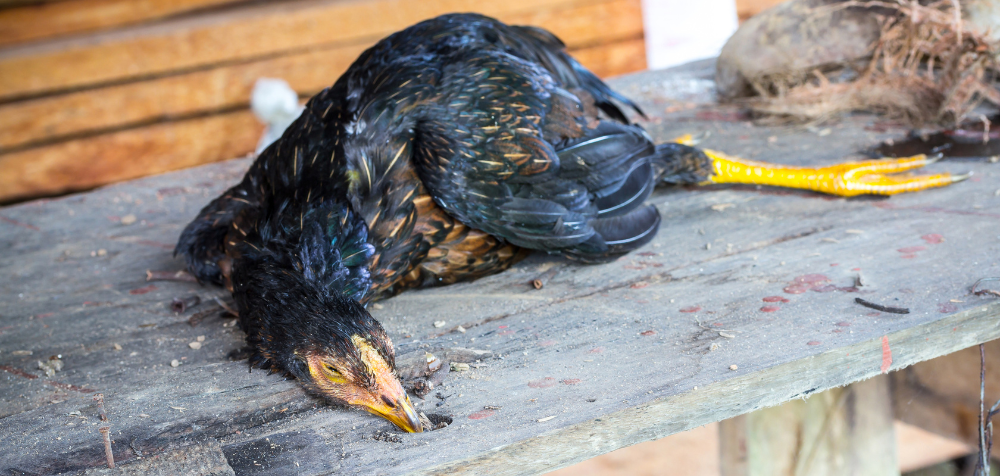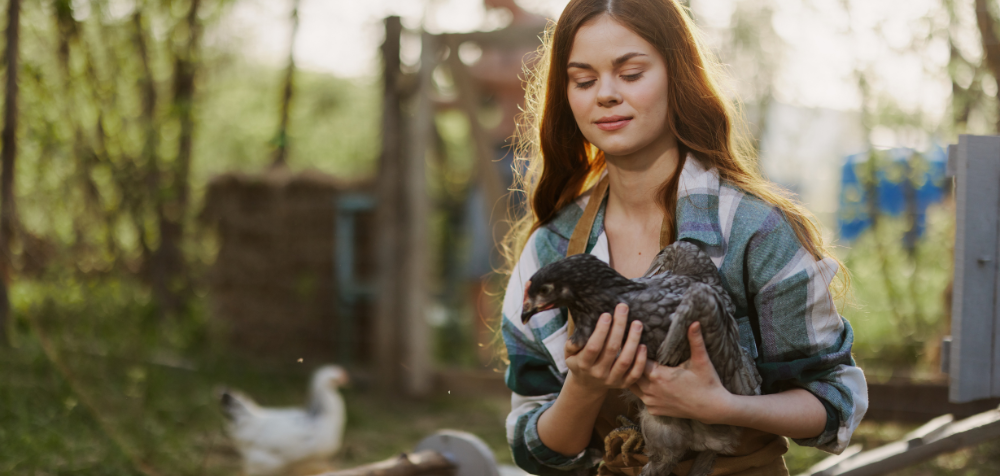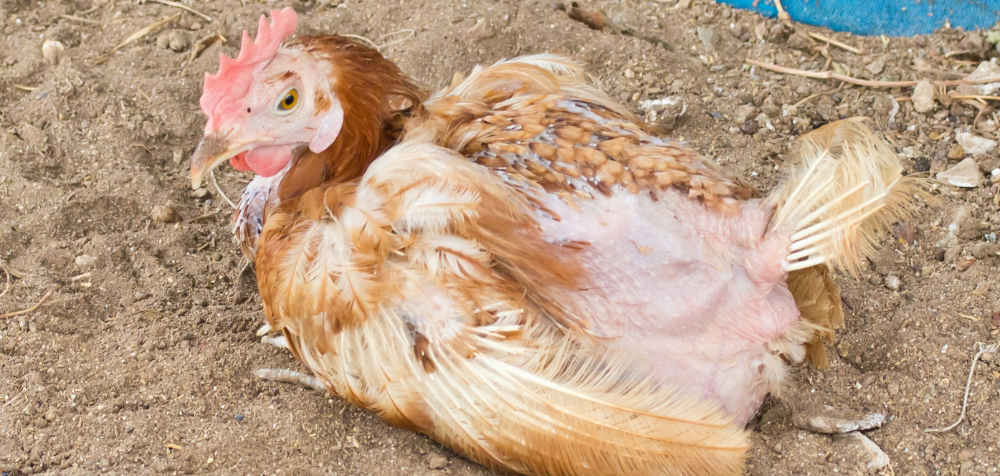Understanding chicken diseases, how to spot them, and the best ways to treat them will ensure that your flock stays healthy and happy. In this guide, we’ll cover the most common chicken diseases, how to identify them, and steps you can take to treat and prevent them from spreading.
Why It’s Important to Recognize Chicken Diseases Early
Just like people, chickens are vulnerable to various diseases, which can quickly spread through a flock if left unchecked. Early detection and treatment can save individual chickens and prevent outbreaks that could wipe out your entire coop.
Learning to recognize the symptoms of chicken diseases is key to ensuring your flock remains in good health.
Common Chicken Diseases and Their Symptoms

There are many chicken diseases that you should be aware of, but here are some of the most common ones that every chicken owner is likely to encounter:
1. Marek’s Disease
A herpes virus causes Marek’s Disease and primarily affects young chickens. This disease is highly contagious and can spread rapidly through a flock.
Symptoms:
- Paralysis, particularly in the legs or wings
- Weight loss despite a good appetite
- Cloudy eyes, leading to blindness
- Tumors in various organs
Treatment: Unfortunately, there is no cure for Marek’s Disease once it has taken hold. However, vaccination is available and highly effective in preventing the disease. Vaccinate chicks early to avoid outbreaks.
2. Coccidiosis
Coccidiosis is a parasitic disease that primarily affects the intestines of chickens. It’s caused by protozoa and can lead to severe health issues if left untreated.
Symptoms:
- Bloody or watery diarrhea
- Lethargy and weakness
- Ruffled feathers
- Poor growth in young chicks
Treatment: Treatment typically involves using medicated feed or water with anti-coccidial drugs. Prevention is key, and keeping the coop clean with dry bedding helps reduce the risk of infection.
3. Avian Influenza (Bird Flu)
Avian Influenza is a viral disease that can infect both wild and domestic birds, including chickens. It can range from mild to severe and is a significant concern due to its potential to cause massive outbreaks.
Symptoms:
- Respiratory issues such as coughing or sneezing
- Swollen head or neck
- Decreased egg production
- Sudden death in severe cases
Treatment: There is no direct treatment for avian influenza. Prevention through biosecurity measures is crucial. Avoid contact with wild birds, ensure proper sanitation, and quarantine new birds before introducing them to your flock.
4. Fowl Pox
Fowl Pox is a slow-spreading viral disease that affects chickens and other poultry. It comes in two forms: dry pox, which causes lesions on the skin, and wet pox, which affects the respiratory system.
Symptoms:
- Wart-like lesions on the comb, wattles, or beak (dry pox)
- Difficulty breathing (wet pox)
- Loss of appetite and weight loss
Treatment: There’s no specific cure for fowl pox, but you can treat the symptoms. Vaccination is available and effective in preventing the disease. Applying iodine to dry lesions and providing supportive care helps affected chickens recover.
5. Newcastle Disease
Newcastle Disease is a highly contagious viral infection that affects the respiratory, digestive, and nervous systems. It can strike chickens of all ages.
Symptoms:
- Gasping, coughing, and sneezing
- Nervous signs such as twisted necks or paralysis
- Greenish diarrhea
- Decreased egg production or thin-shelled eggs
Treatment: There’s no cure for Newcastle Disease, but vaccination can help prevent it. Once infected, the focus is on controlling the outbreak through strict quarantine measures and supportive care.
How to Prevent Chicken Diseases

While treating chicken diseases is essential, prevention is always better. A few key strategies can go a long way in keeping your chickens healthy and disease-free.
1. Maintain Proper Coop Hygiene
A clean environment reduces the risk of many chicken diseases. Regularly remove droppings, old bedding, and uneaten food. Keep the coop well-ventilated to avoid the buildup of moisture, which can promote the growth of harmful bacteria and parasites.
2. Ensure a Balanced Diet
Healthy chickens are more resistant to diseases. Make sure your flock is getting a well-balanced diet rich in essential vitamins and minerals. A good diet boosts their immune system and helps them fend off infections.
3. Quarantine New Birds
When introducing new chickens to your flock, it’s crucial to quarantine them for at least 2-3 weeks. This prevents the introduction of new chicken diseases to your existing flock.
4. Vaccinate Your Chickens
Vaccination is one of the most effective ways to prevent many common chicken diseases, including Marek’s Disease, Newcastle Disease, and fowl pox. Consult your vet about the appropriate vaccinations for your flock based on your area and conditions.
5. Control External Parasites
Mites and lice not only cause discomfort but can also spread diseases among chickens. Regularly check your birds for external parasites and treat them with appropriate powders or sprays if necessary.
What to Do if Your Chickens Get Sick
Despite your best efforts, you may still encounter chicken diseases in your flock. Here’s what to do if you notice any signs of illness:
1. Isolate Sick Birds
The first step is to separate any sick chickens from the rest of the flock. This prevents the disease from spreading to healthy birds. Keep the sick bird in a warm, comfortable area where you can monitor it closely.
2. Consult a Veterinarian
Not all chicken diseases can be treated at home. If you’re unsure about the cause of your chicken’s illness or if symptoms worsen, consult a vet who specializes in poultry. They can provide a diagnosis and recommend appropriate treatment.
3. Administer Medication if Necessary
Some diseases, like coccidiosis or bacterial infections, can be treated with medication. Follow your vet’s instructions for dosage and duration to ensure your chickens recover fully.
4. Provide Supportive Care
For chickens with untreatable diseases or those recovering from illness, supportive care is essential. Ensure they have access to fresh water and food. If a chicken has difficulty eating, try offering soft foods like scrambled eggs or wet mash to encourage them to eat.
Chicken Disease Summary
Keeping your flock healthy involves recognizing and addressing chicken diseases before they become major issues.
By understanding the symptoms of common diseases, providing preventive care, and taking action when needed, you can maintain a thriving flock.
Whether through good hygiene, vaccination, or timely treatment, proactive steps are the key to ensuring your chickens lead long, healthy lives.

